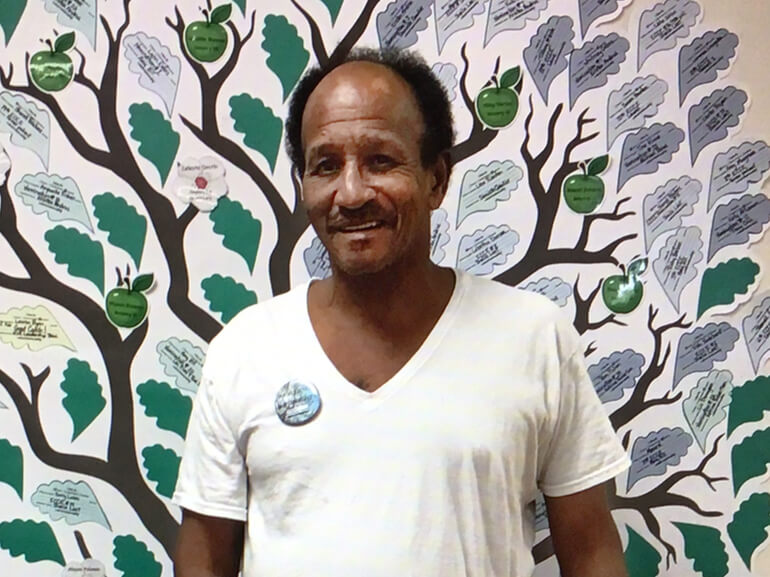Donald's Story

Donald Williams was enjoying an independent lifestyle in Mandeville, Louisiana. The 69-year-old was out socializing with friends and spending time with his cousin. One morning, Donald woke up and was surprised by his slurred his speech and difficulty walking. He immediately went to the Emergency Department at Lakeview Medical Center where a brain scan revealed a stroke. After stabilizing, Donald was referred to Northshore Rehabilitation Hospital to continue his recovery.
Upon arrival, physical, occupational and speech therapy assessed Donald who was still having significant difficulty walking, speaking clearly and with personal care tasks. He was able to walk eight feet but with required assistance–his right side was weak and uncoordinated. Donald also had difficulty swallowing. There was a lot of work ahead, but he was motivated.
Physical therapists had Donald work with the parallel bars to strengthen his right leg and start honing his balance and stepping ability. Therapists used electrical stimulation – low level electrical impulses – on Donald’s leg muscles which helps increase muscle function and improves the quality of his walk. Donald’s therapy team also placed him in an exoskeleton, a wearable robotic device. Slowly, Donald was recovering his gait. As his strength and coordination increased, he started walking outside the parallel bars and eventually graduated to a hemiwalker which provided him more assistance on his weaker side. Donald also wore a brace in his right shoe to prevent foot drag.
Meantime, Donald also required a lot of help with self-care due to the weakness in his right arm. His occupational therapist taught Donald how to compensate for that with strategies to safely increase his independence. Concurrently, he worked to increase flexibility in his right arm with daily range of motion exercises, as electrical stimulation helped increase muscle movement and reawakened the connection between his arm and brain.
Speech therapy helped Donald strengthen the muscles in his tongue allowing him to manipulate food and improve his swallowing. He also worked on speech strategies such as how to move his mouth and tongue to create better word pronunciation to improve his communication through conversational therapies. Along with that, his therapist had Donald recall long-term personal and family memories through repetition and reflection of his life and history.
Within three weeks of rehabilitation, Donald was strong enough to walk over 200 feet with a walker, independently care for himself and eat regular good. He had gained strength and functional skills that would allow him to discharge to his daughter’s home in Atlanta. He shared, “I am very pleased with the care I received at Northshore Rehabilitation Hospital. I would not be where I am today without the excellent therapy I received from the team.”
Because of his strength and determination, Donald made great progress in his recovery and was able to move to Atlanta to be close to his family.